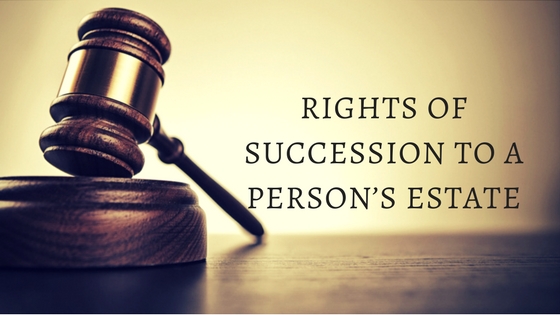Aapka Consultant Judgment Series- In this series, we are providing case analysis of Landmark Judgments of Hon’ble Supreme Court of India.
Smt. Maneka Gandhi Vs. Smt. Indira Gandhi
AIR1984Delhi428
Hon’ble Judges/Coram: M.L. Jain, J.
Decided On: May 10th, 1984
FACTS:-
Maneka Gandhi was married to Sanjay Gandhi on September 29th, 1974. Their son Feroze Varun Gandhi was born on March 13th, 1980. Sanjay Gandhi died on June 23rd, 1980. On February 3rd, 1982, Maneka Gandhi prepared a petition for grant of letters of administration in respect of some company securities under Section 278 of the Indian Succession Act, 1925. Due to non-appearance of the petitioners, the case was consigned to the records and was revived later. Notices were also issued to Indira Gandhi and Rajiv Gandhi. Indira Gandhi contended in her reply that she was one of the heirs to the estate of Sanjay Gandhi. However, she was not interested in claiming her share and wanted her share and interest in the properties to be treated as properties accruing to the ownership of Varun subject to strict surveillance and vigilance till Varun comes of age.
ISSUE:-
- Whether the appellants, Maneka Gandhi and Varun Gandhi, were entitled to the estate of Sanjay Gandhi to the exclusion of the respondent, Indira Gandhi?
JUDGMENT:-
The District Judge who originally heard the petition held that Section 21-A of the Special Marriage Act lays down personal law will apply to the parties claiming the succession if marriage has been performed under the Special Marriage Act. Thus, in the present case, Indira Gandhi, Maneka Gandhi and Varun Gandhi were each entitled to 1/3rd share of Sanjay Gandhi’s estate and since Indira Gandhi relinquished her share in favour of Varun, Varun is thus entitled to 2/3rd share in the estate of his late father. Thus, the District Judge directed that letters of administration shall be issued to Maneka Gandhi, subject to certain terms and conditions.
Maneka Gandhi appealed against this judgment. It was submitted that Varun was entitled to 2/3rd share of property in his own right and was a necessary party but his name was omitted due to inadvertence and oversight. The Court rejected this plea and appointed a senior Joint Registrar as a guardian ad litem of Varun.
Retrospective application of Section 21-A of the Special Marriage Act, 1954 was contended. Sections 19-21 of the Special Marriage Act provide that whenever a person who is a member of an undivided family marries under the Special Marriage Act, he shall be deemed to have severed his relationship with such family. The combined effect of Section 5 of Hindu Succession Act and Sections 19-21 of the Special Marriage Act in case of a special marriage between two Hindus themselves, their own right of inheritance and succession to their properties would be governed by a different rule simply because they have chosen solemnization of marriage under the Special Marriage Act. Hence, Section 21-A was included in the Special Marriage Act on May 27th, 1976 to remove this discrimination in succession in consequences of such type of marriages.
It was contended that Section 21-A would not apply to a person whose marriage was solemnized before the amendment but who died after the amendment. This contention was rejected by the Court. The Court held that Section 21-A does not affect marriages which were solemnized before its insertion. It does not affect the successions which had opened earlier than the amendment. Rights of succession to a person’s estate do not arise upon the marriage but arise upon the death of that person. It was therefore incorrect for the appellant to contend that this Section affects the transactions which have taken place before the Amendment nor does it impair or take away any vested right. Section 21-A is only prospective in operation, i.e. when the succession opened in this case on June 23rd, 1980, it was to be governed by the law that was in force on that date. The Court also upheld the constitutional validity of Section 21-A.
The counsel for the appellant argued that the appellant married a Parsi born of a Parsi father and therefore Section 21-A had no application in the present case which exclusively applied to Hindus. The Court found this submission to be devoid of merit. There was no allegation in any document filed or submitted by the appellant that Sanjay Gandhi was not a Hindu. Indira Gandhi was herself a Hindu and Sanjay Gandhi was brought up as a member of the family to which she belonged. He never underwent the Navjot ceremony to be christened a Parsi and in fact, Indira Gandhi openly brought him up as a Hindu. The marriage of Indira Gandhi was performed by Vedic rites. Sanjay Gandhi was thus born of Hindu parents. Thus, the contention that Sanjay Gandhi was not a Hindu was rejected and thus Section 21-A could be invoked in the present case.
HELD:-
The appeal and the revision stood dismissed. Rights of succession to a person’s estate do not arise upon marriage but arise upon the death of that person.
To Get Legal Opinion from Advocates/ Legal Experts, Please click here
To Get Legal Opinion from Retired Hon’ble Judges, Please click here












